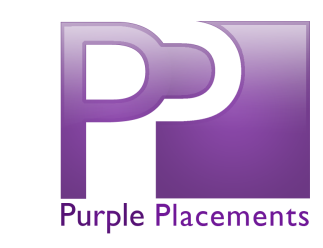
Top Ten Interview Questions and Best Answers

Are you ready for your upcoming job interview? It’s important to be prepared so you can respond effectively to the questions that employers typically ask in an interview. To help you along we have picked the ten most common questions asked, along with some of the best answers.
1. What do you know about the company?
Take the time before the interview to thoroughly research the company, its products or services and company culture. However, anybody can read a company website and regurgitate it back, so make sure you can offer more than this.
Make sure you understand the company’s goals, perhaps using a couple of key words and phrases from the website, but then go on to make it personal. Say, “I’m personally drawn to this because…” and share a personal example or two
2. Why do you want this job?
Companies want to hire people who are passionate about the job and so you should have a prepared answer about why you want the position. Go through the job description thoroughly and identify a couple of key factors that make the role a great fit. Be specific about what skills you have that make you a good candidate and mention aspects of the company and position that appeal to you the most.
3. Why should we hire you?
Here you need to sell yourself to whoever is hiring. This is not the time to be modest (although neither should you be conceited). Confidently explain what you have to offer the employer, and why you should get the job. This is another good time to review the qualifications and the requirements in the job listing, so you can deliver a response that aligns with what the interviewer is looking for.
4. What are your greatest professional strengths and weaknesses?
This is one of the questions that employers almost always ask. It’s important to discuss the skills you have which are specific to the role and will set you apart from other candidates. Take the time before the job interview to make matches between your qualifications / work experience and the requirements listed in the job spec. Make sure you have examples ready at hand to demonstrate your suitability for the position. When talking about weaknesses, do your best to frame your answers around positive aspects of your skills and abilities, turning seeming “weaknesses” into strengths. For example, you might say something like, “I’ve always struggled with perfectionism this means that I sometimes devote more time to a project than is necessary”.
5. Is there a time you have disagreed with a decision that was made at work?
In asking this question the employer wants to know that if you disagree with a decision at work, you can do so in a productive, professional way. Explain the situation clearly but don’t focus on the negative. Tell them about a time where yes you disagreed with a decision but your actions made a positive difference on the outcome of the situation. It’s good to have an example prepared before the interview as this is one that is hard to think up on the spot.
6. How do you handle stress and pressure?
The best way to respond to this question is to give an example of how you have successfully handled stress when something has gone wrong at work. Avoid claiming that you’ve never experienced stress. The interviewer may not believe you and it could lead to them thinking that you’ve only worked in low-pressure environments and therefore may not be equipped to handle a difficult situation. Structure your response in a way that acknowledges you have experienced workplace stress and explain how you dealt with it, or even used it to your advantage.
7. Describe a challenge or difficult work situation you have encountered and how you overcame it.
The interviewer wants to know what you do when you face a difficult decision or challenging situation at work. Be prepared to share an example of what you did in a tough situation. It’s important to give enough detail around this example in order to make the story engaging. However, make sure you don’t talk negatively about other people or your past employer as this can detract from what the interviewer really wants to know, and will only make yourself look bad.
8. How do you deal with conflict at work?
Here your interviewer wants to get a sense of how you will respond to conflict. You may want to use the STAR method, this is:
Situation: Set the scene and give the necessary details of your example.
Task: Describe what your responsibility was in that situation.
Action: Explain exactly what steps you took to address it.
Result: Share what outcomes your actions achieved.
being sure to focus on how you handled the situation professionally and ideally closing with a happy ending.
9. What’s your management style?
If you are applying for a Management position this question is a dead cert. The best managers are strong, fair and flexible so that’s exactly what you want to show off in your answer. Share a couple of your best managerial moments, like when you headed up a major project or coached an underperforming employee to become the company’s top employee.
10. What are your goals for the future?
This question is designed to find out if you’re going to stick around or move on as soon as you find a better opportunity. Keep your answer focused on the job you are interviewing for, and reiterate to the interviewer that the position aligns with your long-term goals. You may wish to ask here about opportunities that exist in their company.
